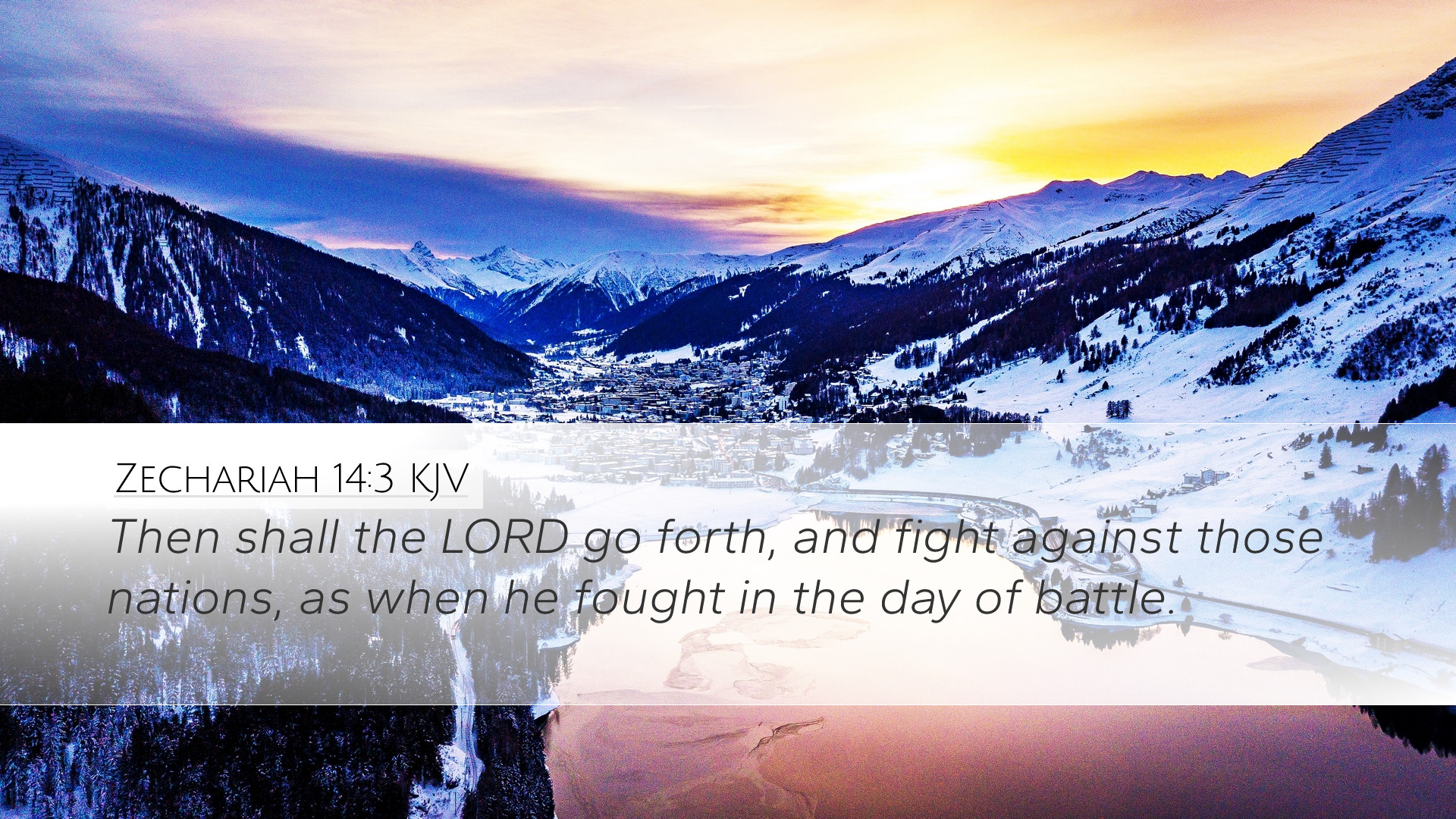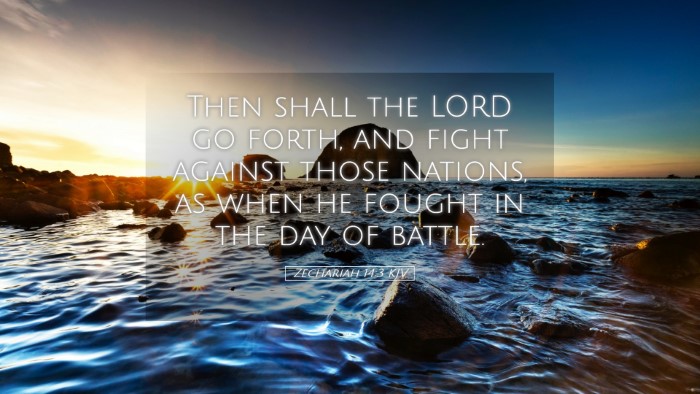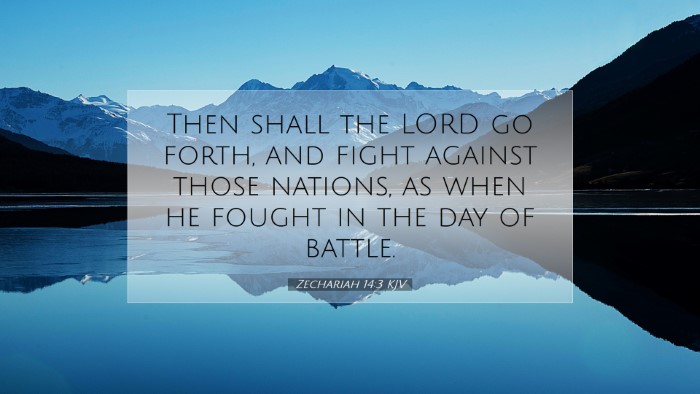Commentary on Zechariah 14:3
Bible Verse: "Then shall the Lord go forth, and fight against those nations, as when he fought in the day of battle."
Introduction
The verse from Zechariah 14:3 presents a prophetic vision that speaks to both the immediacy of God's intervention and His ultimate sovereignty over nations. This passage invites an exploration of divine warfare, the restoration of Israel, and eschatological implications.
Context and Historical Setting
This chapter of Zechariah occurs within a post-exilic context, where the people of Israel are being encouraged to envision God's promises amid their circumstances. Zechariah prophesies a time when God will directly intervene in human affairs, particularly concerning the nations that oppose His people.
1. Historical Background
The historical backdrop involves the rebuilding of the temple and the city of Jerusalem after the Babylonian exile. Israel was surrounded by hostile nations, and this passage serves to reassure them of divine protection and the ultimate triumph of God’s plan.
Theological Themes
Zechariah 14:3 encapsulates key theological themes that resonate deeply with both Old and New Testament narratives.
1. Divine Intervention
Matthew Henry emphasizes that God acts personally and directly in the affairs of men, which illustrates His active role rather than a distant deity. This divine intervention is characterized by the phrase "go forth," indicating a movement of God toward His creation in times of crisis.
2. Warfare of the Lord
Albert Barnes notes that the metaphor of God fighting implies not only judgment but also the protection of His covenant people. The imagery draws parallels to God's previous acts of deliverance recorded in the Exodus and conquest narratives, showcasing His consistent character as a warrior on behalf of Israel.
3. Fulfillment of Prophecy
Adam Clarke asserts that this verse looks forward to a climactic confrontation during the eschatological return of Christ. This highlights the ongoing fulfillment of God’s promises, echoing through the course of history into the future hope of restoration and reconciliation.
Interpretive Insights
This verse has prompted various interpretations, especially in the context of eschatological theology. Understanding this passage requires examining its implications both in its original context and its applications today.
1. Eschatological Implications
Many scholars assert that Zechariah 14:3 signifies the apocalyptic battle between good and evil at the end of times. The New Testament echoes this sentiment, particularly in Revelation, where the final confrontation of God against the nations is vividly portrayed.
2. Applicative Lessons
For contemporary believers, the promise of God’s intervention can serve as a source of hope amid trials. It reassures that God is not passive during struggles but active, fighting for His people and ensuring His plans will prevail.
Conclusion
Zechariah 14:3 resonates profoundly with the Christian understanding of God’s nature as protector and warrior. It encapsulates themes of divine intervention, warfare, and prophetic fulfillment that both ensure the welfare of God’s people and foretell a glorious future. As believers reflect on this passage, it is essential to recognize God’s active presence in their lives and His unwavering commitment to His promises.
Reflection Questions
- How does the imagery of God's warfare inform our understanding of spiritual battles today?
- In what ways can we see God's redemptive plan unfolding in our world?
- What does this passage teach us about the nature of God in times of crisis?


